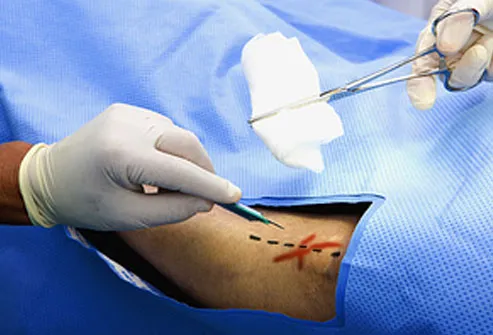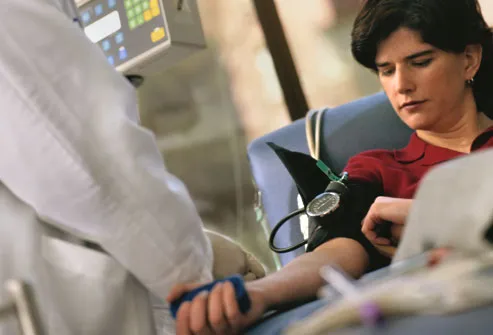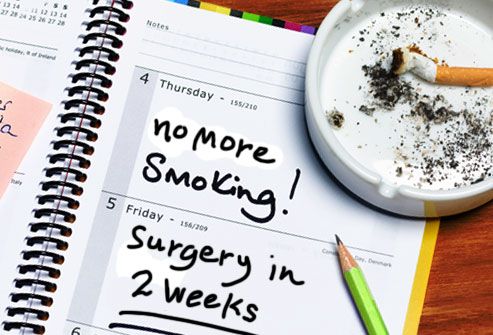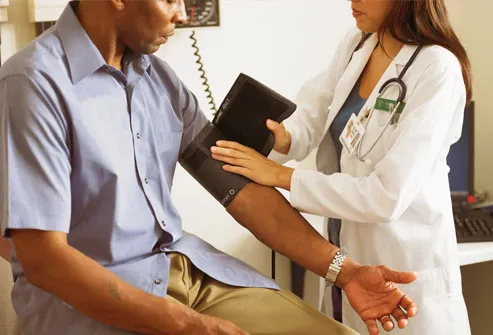Tips to Help You Prepare for Surgery

Be a Know-It-All
Learn about your surgery and meet with your medical team. Talk to your surgeon and to the expert who manages your comfort and care during the operation, your anesthesiologist. Ask them questions about everything, from risks to healing time. Your hospital may offer classes that also can teach you about your procedure.
Swipe to advance

2
/
22
X Marks the Surgical Spot
To prevent mistakes, your doctor or nurse may use a pen to mark the place on your body where you're going to have your surgery. Ask your surgeon if you should expect this with your operation.
Swipe to advance

3
/
22
Ask About Anesthesia Options
How you'll be numbed during the operation often depends on the type of surgery you're getting. Ask your anesthesiologist about your choices.
"Local" anesthesia numbs a small part of you, "regional" works on a larger area, and "general" affects your whole body.
You inhale some types of anesthesia, while others you get from a shot or through a vein (IV).
Swipe to advance

4
/
22
Don't Fear Waking Up During the Surgery
Coming to while under general anesthesia can happen, but it's rare to become fully aware. Most people that this happens to do not feel any pain. Talk with your anesthesiologist before your surgery if you have any concerns, or if you think it's happened to you before.
Swipe to advance

5
/
22
Pain After Surgery
You may feel pain, pressure, or a burning sensation where you were operated on and as you start moving. Your muscles might be sore, and your throat may be uncomfortable.
Tell your doctor if you need pain medicine while you're in the hospital. And ask what your options are for relief when you get home. Besides medication, relaxation tapes, heat or cold therapy, or massage may also help.
Swipe to advance

6
/
22
Fight Hospital Infections
After surgery, keep your hands clean. And don't be shy about making sure your doctors and nurses wash their hands or sanitize them before treating you. It can help keep you from catching infections like MRSA, a germ that's hard to treat.
Swipe to advance

7
/
22
Are You at Risk for Blood Clots?
Some surgeries can raise your chances of getting a dangerous blood clot called a deep vein thrombosis (DVT). These can travel to the lungs and block blood flow, a condition called a pulmonary embolism. This can be deadly, but quick treatment can often save your life.
Things that can raise your risk for DVT include older age, being overweight, smoking, conditions such as cancer or previous clots, and some medications.
Swipe to advance

8
/
22
Discuss Your Medical Conditions
Tell your doctor if you have any health issues, including heart or lung disease, diabetes, high blood pressure, dental work, arthritis, or drug allergies.
Also tell him if you or anyone in your family has had a reaction to anesthesia.
Swipe to advance

9
/
22
Avoid Medication Mishaps
Tell your doctor about all the medicine you take. Some can lead to side effects during surgery. For example, blood thinners and aspirin can put you at risk for too much bleeding.
Your doctor will tell you which medications you should take before your operation and which ones to stop.
Swipe to advance

10
/
22
Surprising Supplement Reactions
Many supplements, such as ginkgo biloba, ginseng, garlic, echinacea, fish oils, or vitamins, may be risky to take before surgery. For instance, some may raise the chance of heart problems or bleeding. Others may affect how long anesthesia lasts or mix badly with other medicines, causing unexpected side effects. Your doctor may tell you to stop taking them 1 or 2 weeks before your operation.
Swipe to advance

11
/
22
Should You Donate Blood?
Ask your doctor if there's a chance you'll need a blood transfusion during surgery. If so, and your operation is at least 4 weeks away, you may be able to donate blood and have some of it stored in case you need it.
Swipe to advance

12
/
22
Get a Second Opinion
Not sure surgery is right for you? Don't be afraid to get another doctor's view. Look for someone who specializes in treating your condition.
Swipe to advance

13
/
22
Line Up Caregivers
You may need a little help getting around after surgery, so ask your family and friends for support. As you recover, let yourself be pampered and cared for. And for the first evening, be sure there’s a responsible adult who can stay overnight with you at home.
Swipe to advance

14
/
22
Stock Your Pantry and Freezer
Before your surgery, make sure you have plenty of healthy foods and drinks in your home. That way you won't have to worry about shopping during your recovery.
Don't have time? Ask friends or family to help out.
Swipe to advance

15
/
22
Wear Loose Clothing
Dressing can sometimes be a challenge as you recover. If your surgery affects your movement, look for soft, loose clothes that are easy to put on and take off. Elastic-waist or loose-fitting pants and shirts that button, rather than pullovers, may be easier to wear.
Swipe to advance

16
/
22
Don't Eat or Drink Before Surgery
Anesthesia can cause vomiting during or after an operation. Your body normally keeps you from inhaling food you spit up, but anesthesia can stop these reflexes from working. This can cause choking and other complications after surgery. So make sure you follow your doctor's instructions about when to stop eating or drinking.
Swipe to advance

17
/
22
Make Lifestyle Changes
People with healthy habits are often better able to handle surgery. Ask your doctor what you can do to get in better shape between now and your operation -- and then keep it up. If you prepare both physically and mentally, you're likely to have a quicker recovery, less pain, and fewer complications.
Swipe to advance

18
/
22
Limit Alcohol
Drinking can have unpredictable effects on anesthesia and cause other problems, such as too much bleeding or liver damage. Be honest with your doctors about how much and how often you drink. Ask if you should stop drinking, or at least cut back, to help lower your risk of complications from surgery.
Swipe to advance

19
/
22
If You Smoke, Stop
Smoking raises your risks of infections and other surgery complications. Quitting before your operation may also help you heal more quickly.
It's best to stop at least 2 weeks before surgery. Nicotine replacement treatments and support groups are just a couple of ways to help make it easier to end your tobacco habit.
Swipe to advance

20
/
22
Check Your Blood Pressure
If you have high blood pressure, make sure your medical team knows. It's important to get it under control before surgery. Ask your doctor about steps you can take.
If you're on high blood pressure medication, don't forget to ask if you should take it on the day of your operation.
Swipe to advance

21
/
22
Manage Your Weight and Eat Right
Eat healthy foods to get the nutrition you need to heal. If you're overweight or obese, you could be at higher risk for complications. While losing some pounds can help your recovery, don't start dieting without your doctor's OK if your surgery is less than a month away.
Swipe to advance

22
/
22
Get Exercise
Doing so before surgery may help you recover faster. No matter your activity level, talk to your doctor about it. He can help you learn how you can safely be active before and after your procedure.
Swipe to advance
- Get link
- X
- Other Apps